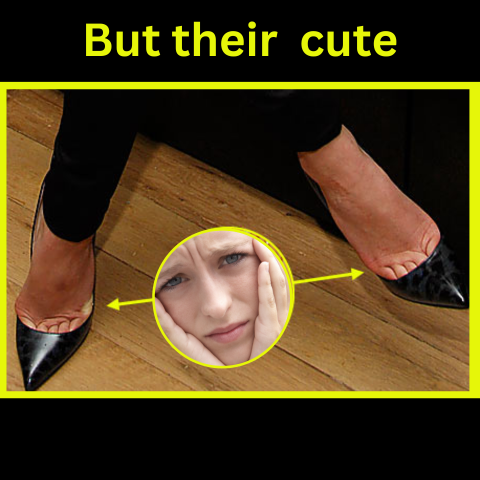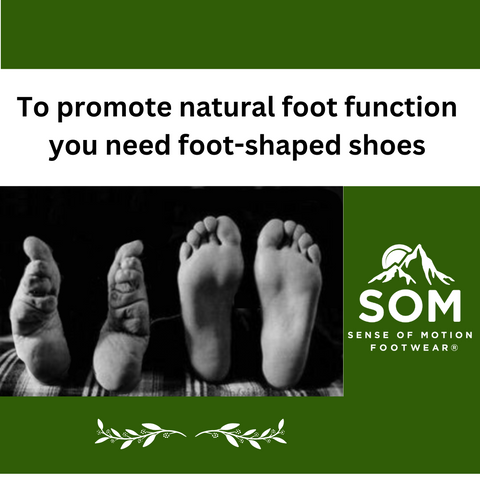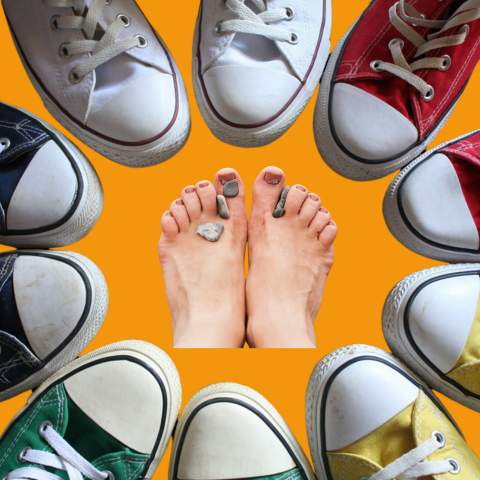From a barefoot-style, zero-drop shoe manufacturer's perspective, the quick answer is that the shoe industry, an 85-billion-dollar market, makes shoes where the essential elements – feet – have been forgotten. The shoe industry and the feet it serves are not connected like they should be.

It might sound odd that major shoe brands must be reminded of what feet need, especially with the evolution of knowledge in the modern world. Even worse, the shoe industry has not listened to its customers who are suffering from foot issues caused by the very shoes that they've been selling for decades.
Let's be fair: more options for healthier footwear are available on the shelves today. It has yet to be perfect, but it is better than even 12 years ago when we started our brand. The fact that big brands are now marketing some foot-shaped models indicates that people are becoming more aware and realize that better footwear is as vital to their well-being as eating healthily. The demand for foot-shaped shoes is growing.
The shoe fashion era, which began during the Middle Ages to differentiate the low and high classes, started a trend in shoe history that has persisted for hundreds of years - and continues today. The elite class was making a fashion point rather than looking for comfort. The fact that the shoes were uncomfortable didn't matter.
History has demonstrated the foot deformities that shoes create when they unnaturally squeeze the feet. Despite that knowledge and increase in foot pain, change has been slow. Learn more about the benefits of natural foot-shaped shoes here.
To Promote Natural Foot Function, You Need Foot-Shaped Shoes.
You, the consumer, want to perform to the best of your ability. To do so, you know that if your feet are in cast-type shoes constraining your feet, you are subject to injuries (bunions, fractures, sprains, etc.) that limit you and degenerate in a matter of time. Pointed shoes squeeze your toes, not allowing you to walk or run naturally, which creates problems with your motion and your entire body up to the top of your spine. Toes that cannot spread naturally reduce your stability, not to mention the unhealthy transformation your toes undergo, which leads to significant problems (like hammertoes, bunions, etc.).

Why aren't shoes designed to fit the natural shape of our feet if it is good for us?
The simple answer is that the shoe industry needs to remember what it serves: feet. Despite all the injuries proven to be caused by shoes, you still have a hard time finding shoes that are healthy for your feet. What is wrong with that picture? Pointed shoes negatively alter your feet and their entire functionality. And the social debate on all sides of the issue is going strong. Understandably, confusion can ensue, and it can be difficult to know what to believe.

Why didn't my foot doctor tell me about pointed shoes?
This a heartbreaking question from someone who just figured it out after years of suffering. Not all doctors believe in feet and continue to think that adding orthotics is the solution for everything. The worst part is that we hear often that podiatrists don't address the issue of the shoes you are wearing and don't direct you to a healthier type of footwear despite all the evidence. It is discouraging and sad to know that many patients will receive medical treatment but not footwear advice. Surgical procedures will occur, but the specialists won't express a word about the unhealthy footwear that caused the problem in the first place. We have customers who received the same surgeries, more than once, years apart, for the same exact problem. When your foot doctor doesn't believe in feet, it is time to wake up!
The best advice we, as individuals, should follow is to pay attention to our instincts and listen to our feet. Start to trust yourself and do it for yourself and no one else. It takes time to perform trial and error on our own, but it is worth the journey.
Listen to your feet; they know what is best.
